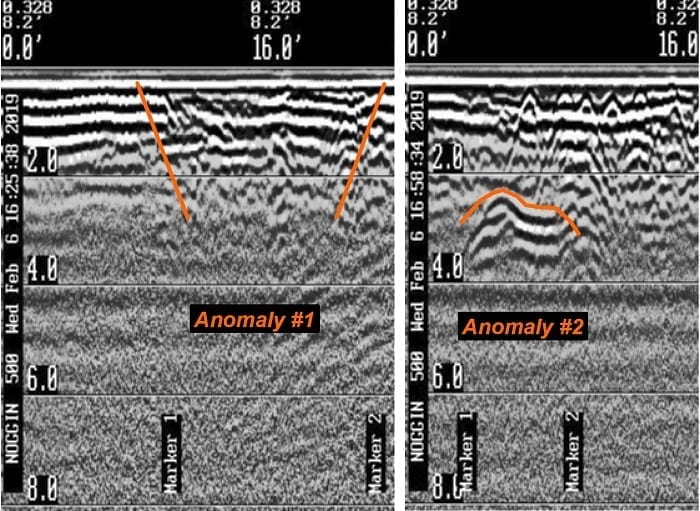All Categories
Featured
Table of Contents
Geophysical Survey in Mariginup Oz 2021
Much of the image includes blank areas now with little or no radar response. The "courtyard" wall is still showing strongly, nevertheless, and there are continuing ideas of a difficult surface in the SE corner. Time piece from 23 to 25ns. This last piece is now practically all blank, however a few of the walls are still revealing strongly.
How deep are these slices? The software I have access to makes estimating the depth a little challenging. If, however, the leading 3 slices represent the ploughsoil, which is most likely about 30cm think, I would guess that each piece has to do with 10cm and we are only coming down about 80cm in overall.

Fortunately for us, the majority of the websites we have an interest in lie simply below the plough zone, so it'll do! How does this compare to the other approaches? Contrast of the Earth Resistance data (top left), the magnetometry (bottom left), the 1517ns time piece (top right) and the 1921ns time piece (bottom left).
Geophysical Methods Commonly Employed For Geotechnical ... in Roleystone Western Australia 2022
Magnetometry, as talked about above, is a passive strategy measuring local variations in magnetism versus a localised no worth. Magnetic susceptibility survey is an active strategy: it is a step of how magnetic a sample of sediment might be in the existence of an electromagnetic field. How much soil is tested depends upon the diameter of the test coil: it can be really little or it can be reasonably big.
The sensor in this case is very small and samples a small sample of soil. The Bartington magnetic vulnerability meter with a large "field coil" in usage at Verulamium throughout the course in 2013. Top soil will be magnetically boosted compared to subsoils merely due to natural oxidation and decrease.
By measuring magnetic vulnerability at a relatively coarse scale, we can find areas of human profession and middens. Sadly, we do not have access to a trustworthy mag sus meter, however Jarrod Burks (who helped teach at the course in 2013) has some outstanding examples. One of which is the Wildcat website in Ohio.
Geophysical Surveys: Definition & Methods in Mahogany Creek Oz 2020
These villages are typically set out around a central open area or plaza, such as this rebuilt example at Sunwatch, Dayton, Ohio. Sunwatch Town, Dayton, Ohio (picture: Jarrod Burks). At the Wildcat site, the magnetometer survey had found a range of functions and houses. The magnetic vulnerability survey assisted, nevertheless, define the primary location of occupation and midden which surrounded the more open location.
Jarrod Burks' magnetic susceptibility survey results from the Wildcat site, Ohio. Red is high, blue is low. The method is for that reason of terrific use in specifying areas of general occupation rather than identifying particular functions.
Geophysical surveying is a used branch of geophysics, which utilizes seismic, gravitational, magnetic, electrical and electromagnetic physical approaches at the Earth's surface to determine the physical residential or commercial properties of the subsurface - Marine Geophysical Surveys in Two Rocks Western Australia 2022. Geophysical surveying approaches normally measure these geophysical homes along with anomalies in order to assess different subsurface conditions such as the presence of groundwater, bedrock, minerals, oil and gas, geothermal resources, voids and cavities, and far more.
Latest Posts
Geophysical Survey Definition in Bayswater Oz 2023
Geophysical Surveys: Definition & Methods in Ardross Australia 2020
What Is Geophysics And What Do Geophysicists Do? in Maddington WA 2023